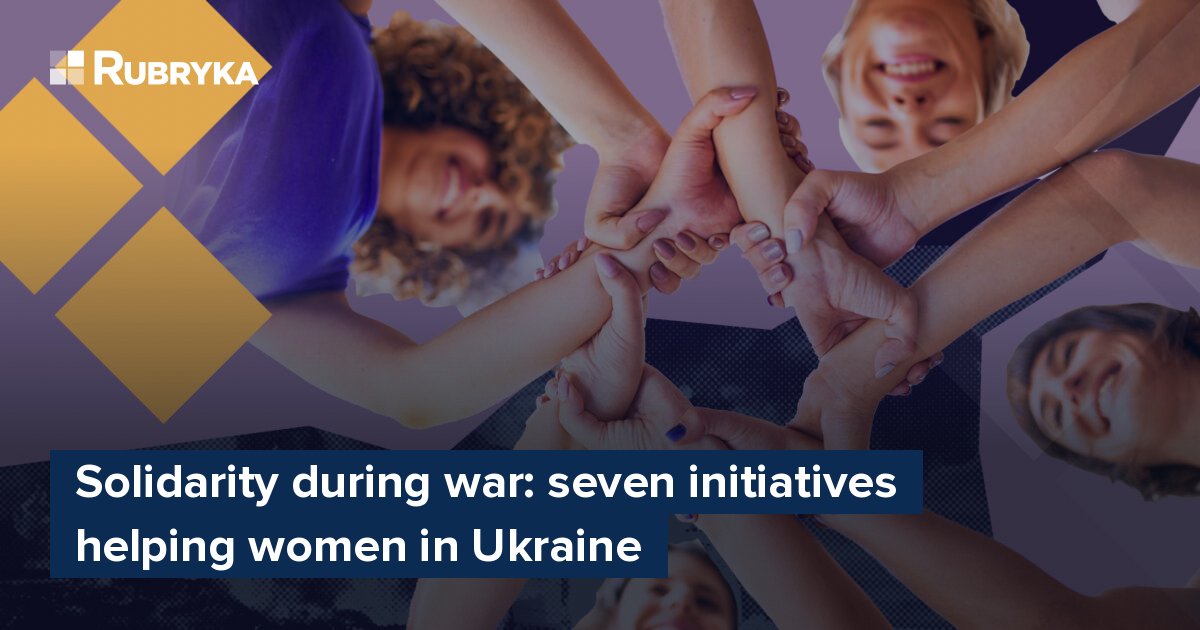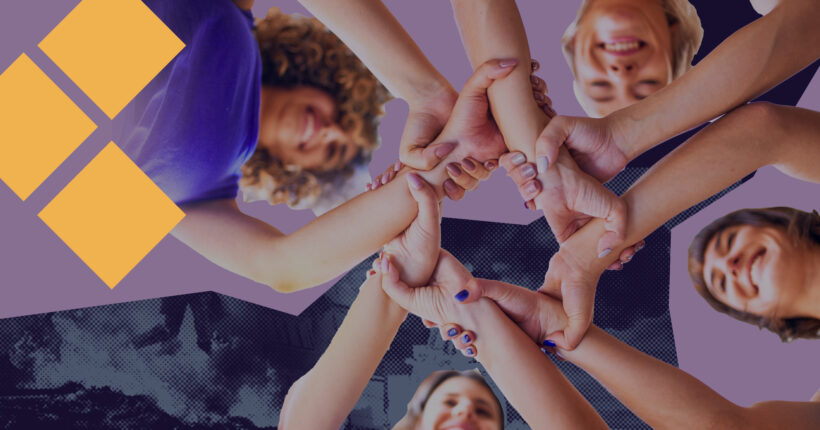
What is the problem?
"The war in Ukraine has also become a war against women and girls," Jaime Nadal, the Ukraine representative of UNFPA, the UN agency that works on sexual and reproductive health, stated in February 2023. According to the agency, women's access to livelihood and medical care necessities has significantly decreased. As of March 28, 2023, Ukraine's General Prosecutor's Office recorded 175 cases of sexual violence committed by Russian soldiers.
What is the solution?
Violence against gender inequality is, unfortunately, a global reality, that in Ukraine is only made worse by war. However, numerous initiatives are aimed at minimizing negative factors and fighting the consequences of the crisis, from local ones with just a few staff to international organizations that work with Ukrainian refugees worldwide. Rubryka spoke to seven initiatives that help women and girls overcome challenges related to unemployment, gender-based violence, and the protection of their rights.
The Women UA initiative
What help can one get: therapy sessions, career networking events, activities to promote human rights awareness, and support clubs.
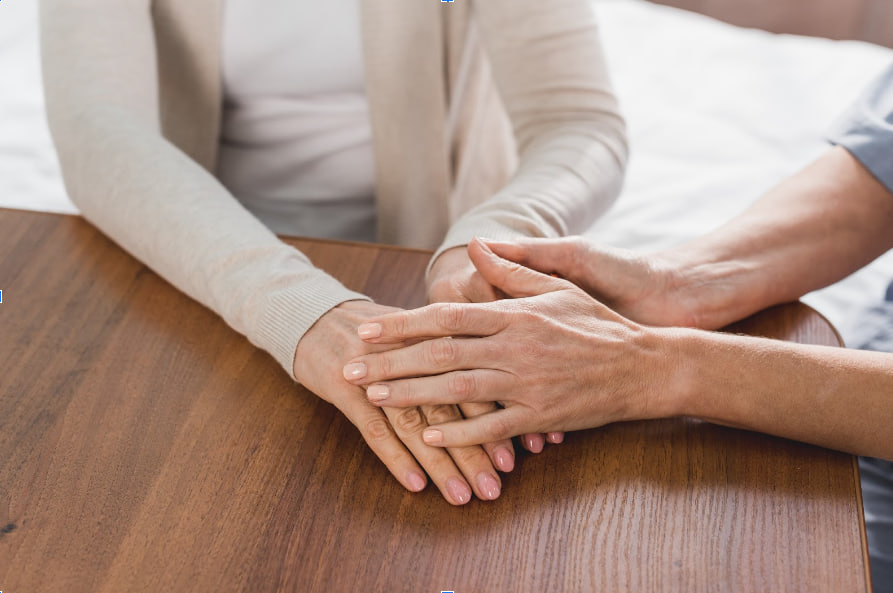
Illustrative image. Source: Depositphotos
The initiative was launched in March last year by journalist Iryna Musii while working as a recruiter in an IT company.
"I wrote a post on Instagram saying I was launching an initiative to support women who had moved abroad from hot spots or have lost their jobs. I called on other recruiters, mentors, coaches, to join us to help women look for jobs, guide them where to go," Iryna told Rubryka.
A small, spontaneously-formed team of volunteers started by holding workshops to help women write resumes and search for job offers online. Several women who moved from Ukraine abroad. With the growing demand, volunteers turned personal sessions into free online group events.

As unpaid volunteers, they can only assist a small group of women.
"The content on our Telegram channel and Instagram can be interesting for those who need support. There are a lot of tips there. We cannot find a job for everyone, but we try to give tips for a more effective search," the project's founder concluded.
To apply for the workshops, contact @WOMEN UA through their Telegram channel or Instagram.
Pani Patronesa NGO
What help can one get: legal, psychological, and social support.
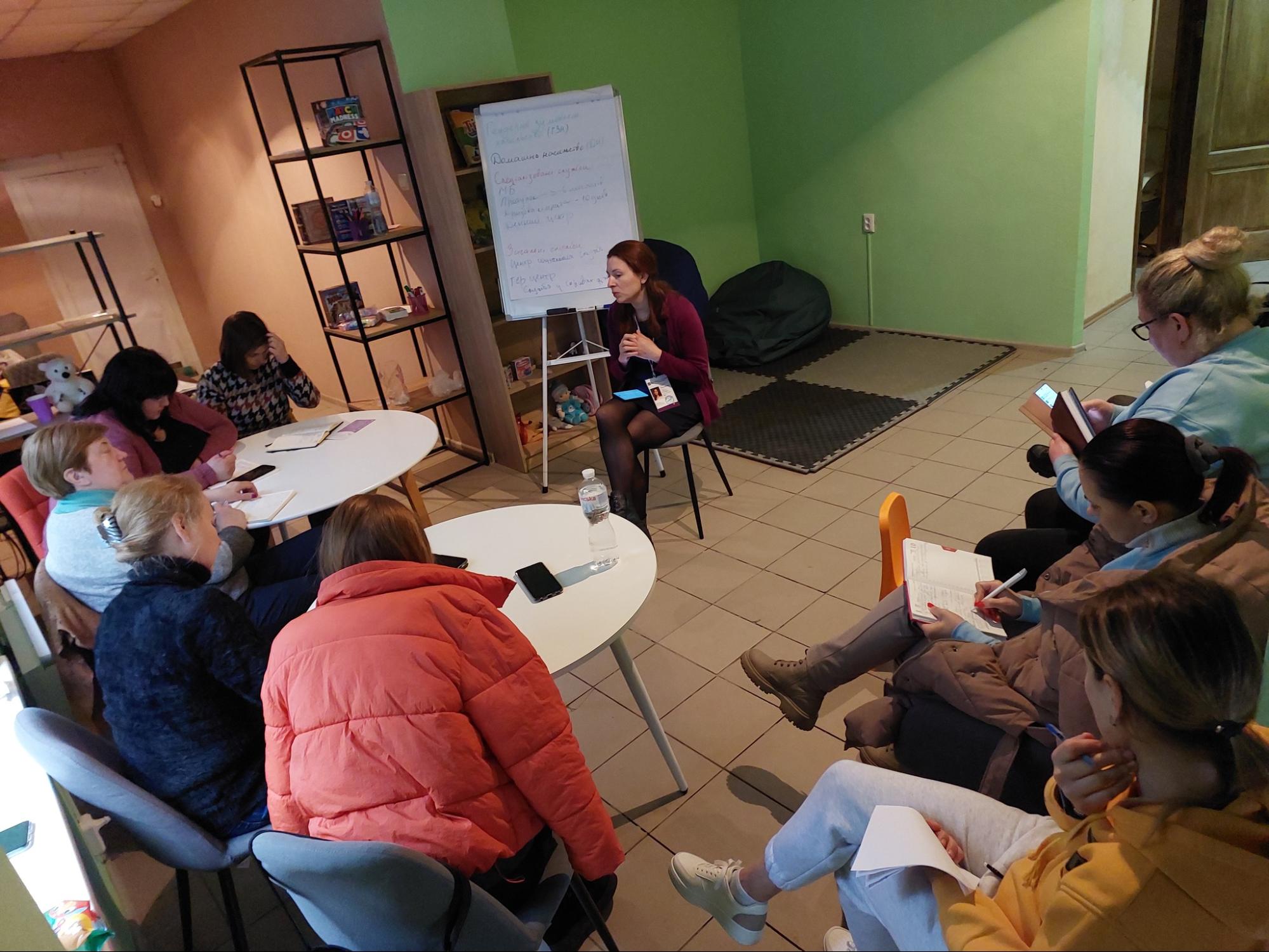
Safe Spaces for Women and Girls attending a workshop to identify cases of gender-based and domestic violence in Kamiansk / Photo from the Facebook page "Pani.Patronesa"
In 2020, ten non-governmental public organizations from the Dnipro city and the region launched the initiative "Pani Patronesa," or Lady Patroness, to support and protect women who have suffered from violence or find themselves in a challenging situation.
"At that time, the coronavirus pandemic was at its peak, and, unfortunately, our state ministries were not always ready to help the victims. Meanwhile, women ended up on the streets without any help," said Hanna Karpechenkova, the head of Pani Patronesa, an expert in preventing and combating domestic violence.
The public organization Martin Club initiated the association in 1999. It had to move to the city of Dnipro from Makiivka in the Donetsk region in 2014 with the outbreak of Russian aggression in Ukraine.
"We united and started helping these affected women, women with children, pregnant women, and elderly women in those cases when they couldn't have external support," Karpechenkova told Rubryka.
Martin Club founded a social house called Rukavychka, a safe shelter for women and a social and commercial hub featuring a bakery and cafe where residents can work and socialize.
The initiative also opened "crisis rooms" in Dnipro, Pavlograd, and Kamiansk to address the needs of domestic violence victims, which have only increased with the outbreak of full-scale war in Ukraine
Women displaced from the Donetsk, Zaporizhzhia, and Mykolaiv regions turn to Pani Patronesa for support of all kinds, from documenting war crimes to emergency cash or clothing.
"Unfortunately, we also continue to identify domestic violence victims among those evacuated to Dnipro," the initiative's founder said. "We respond to crises and provide long-term support to women in a difficult situation."
The entry point for women who request help is Pani Patronesa's hotline at +380 99 632 7701, which operates daily from 9 a.m. to 9 p.m. Karpechenkova stresses: that women from all over the country can ask for help and that the initiative will work to offer them support from its network.
How to apply: hotline 099 632 7701 (every day from 9:00 a.m. to 9:00 p.m.) or via Viber and Telegram messengers. You can also write to the Facebook page of Pani Patronesa.
Urgent gynecological care offices
What help can one get: an examination by a gynecologist, consultation, medical and psychological support, and emergency contraception.
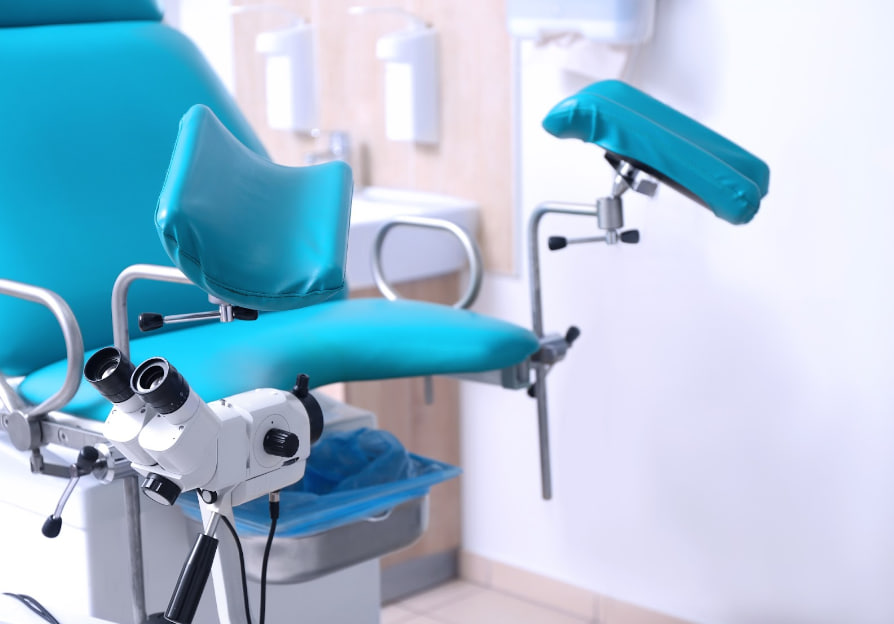
Illustrative image. Source: Depositphotos
"These are offices of medical and psychological assistance to women who have suffered from various types of violence," says Olga Horoshko, the Ternopil region project coordinator of the public organization "Revival of the Nation."
"A woman with an urgent need or an acute condition can also come here. Supposing there was unprotected sexual intercourse, if a woman comes to this office within two hours after it, she will receive free, confidential help from doctors. Thanks to this, she will be able to protect herself from sexually transmitted infections and unplanned pregnancy with a high probability," she told Rubryka.
Overall, 62 gynecological clinics with easy access already operate in six regions, with plans to increase their number.
Horoshko says that such clinics offer confidential, on-demand service without needing an appointment, open 24 hours a day, seven days a week. In addition, the clinics have flexible gynecological chairs accessible to women with disabilities and limited mobility.
"The clinic office is great as it offers help not only to women who have suffered from gender-based violence but also to anyone who has urgent gynecological problems to solve," Horoshko emphasized.
Women and girls of any age can apply to the clinic, and all assistance is free of charge. The offices are equipped with the support of the Ukrainian Women's Fund, the UNFPA representative office in Ukraine, and the Danish Ministry of Foreign Affairs.
How to apply: so far, the project is working in six regions of Ukraine: Vinnytsia, Volyn, Ternopil, Poltava, Lviv, and Dnipropetrovsk. By the end of the year, its geography will expand significantly.
The "Woman for Woman" project
What help can one get: financial assistance, help with goods, medicine, and product delivery on request.
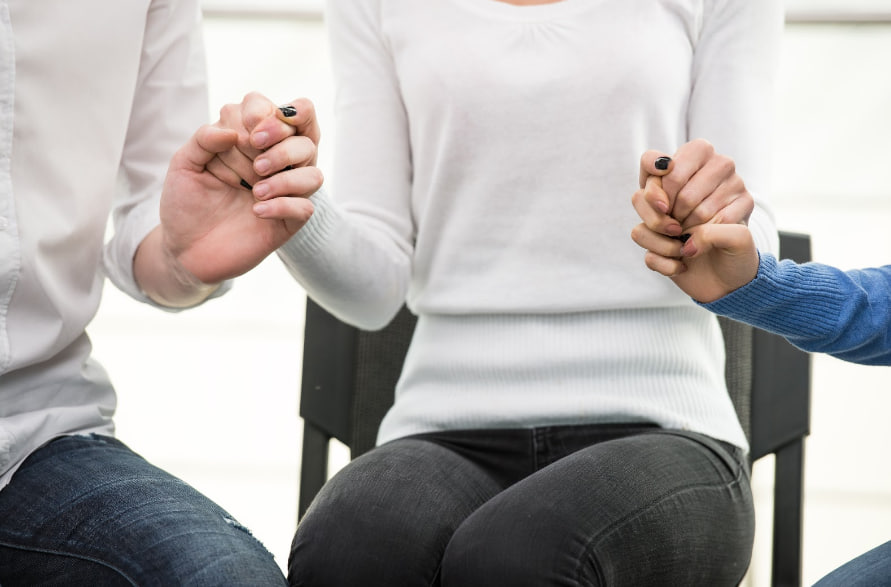
Illustrative image. Source: Depositphotos
The "Woman for Woman" project was launched in December 2020 by the Center for Women's Perspectives NGO to help women get back on their feet when their life situations seem hopeless.
Rubryka has reported that this project is about telling a specific story. A person in trouble shares their problems and needs so that caregivers can help them financially.
Marta Chumalo, deputy head of the Center for Women's Perspectives says that women's requests for help have increased significantly with the full-scale war.
"We used to publish one or two stories weekly, but now there are dozens of daily requests. We cannot cover this need anymore, so we are forced to choose stories of people in the most vulnerable position," Chumalo told Rubryka.
"Women from the frontline areas, women with many children, women with children with disabilities, single mothers… Those who have a much harder time than others."
Despite the heavy volume of requests, the NGO tries to record all incoming requests and sends out approximately one hundred aid boxes per month. They include basic sets of products and hygiene products.
Chumalo stresses that women receive help directly: "We do not raise funds for ourselves and do not redistribute them. When a person wants to help another person, he receives his payment card and can transfer funds directly."
Donors are mainly from abroad, but also a few from Ukraine, and they usually help women anonymously. For example, several people gathered the contacts of the 30 most vulnerable women and pledged to send them three thousand hryvnias ($80) every month for six months. Some donors help a specific person directly every month.
"An important point: we make sure anyone's story is not a fake," the initiators of the project note on their website.
"For example, we ask to send a location if a woman says she is in the front-line zone. We ask her to send a receipt from a store, medical certificates, and other confirmations. We fact-check all the information, and only when we believe this person do we give access to it to other people," they added.
How to apply: leave a comment under a specific story on the project's Facebook page or write a message on the project's page. Fill out an application on the website.
Jurfem Support line
What help can one get: legal and psychological support for victims of sexual violence, including those related to war crimes, and help for discrimination cases.

Illustrative image. Source: Depositphotos
The Association of Women Lawyers of Ukraine, or JurFem, has been providing legal assistance to victims of sexual violence, including those related to war crimes, since Feb. 22, 2022. Rubryka brought this topic up in an interview with Khrystyna Kit, head of the organization.
"We work with sexual violence in a broad sense, which includes not only war crimes," explains Marta Zmysla, lawyer and coordinator of YurFem Support." "These are cases of sexual violence that are committed outside the borders of the front, such as rape and sexual harassment in public places, transport, and educational institutions. We work with this issue comprehensively,".
"YurFem Support" unites more than 30 lawyers in different regions of Ukraine who provide legal assistance to victims in their regions.
"If a person needs psychological support, then thanks to our partners, we refer the victim to them, and he receives a full range of psychological assistance," Zmysla added. Assistance is provided free of charge and confidentially.
How to apply: via the JurFem Support hotline at +380 68 145 55 90 from Monday to Friday from 9 a.m. to 6 p.m., through social media, or by filling out an application on the website.
Gidna project
What help can one get: professional therapy help for women who have experienced or witnessed sexual violence from the Russian military.
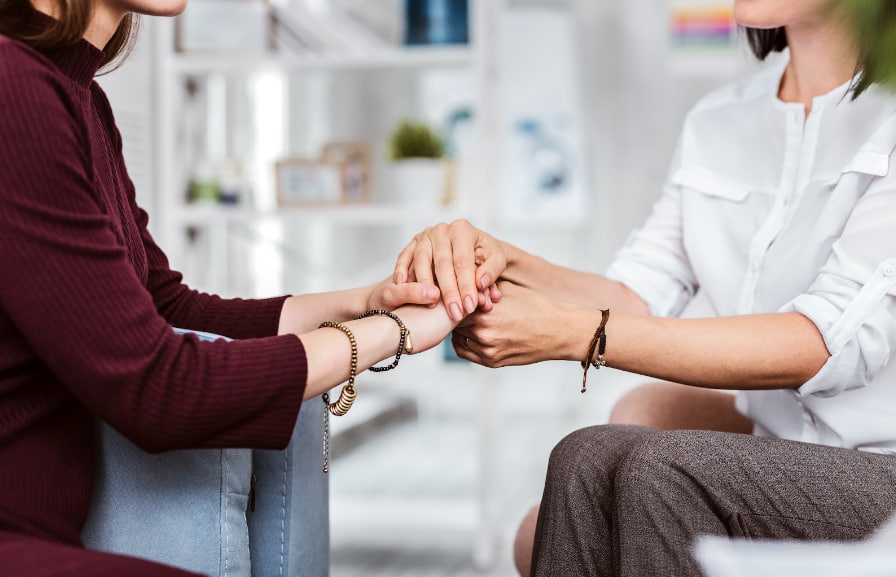
Illustrative image. Source: Depositphotos
The GIDNA project became operational on January 31, 2023, providing therapy sessions from specialists who have experience working with violence trauma and have undergone special training by psychologist Ruth Dorum of the Israel Trauma Coalition. The therapist works with cases of sexual violence and the mental consequences of war and offers practical psychological support to Ukrainian women. You can get help in an offline session with a therapist and online.
As the project's therapist Anastasia Ratushnaya says, a person needs to cope with the primary consequences of traumatic events in the first place. They have to restore essential physiological functions. She needs to comprehend what happened to her to regain her life and relationships with others. To effectively work through trauma, a person needs to understand the stages, their specifics, and how to work on each of them. That is why a therapist needs to be familiar with trauma to know what is necessary to help a person overcome it.
Anyone can apply for a session online. Residents of Kyiv, Dnipro, Zhytomyr, Zaporizhia, Lviv, Odesa, Mykolaiv, Chernivtsi, and Kharkiv can visit a therapist at face-to-face sessions. During 2023, the project plans to assist 200 affected women.
How to apply: fill out an application on the gidna.org website.
"Unbreakable mother" project
What help can one get: psychological help, stabilization, rehabilitation for mothers with children who need psychological support after surviving the occupation, city blockade, loss of a family member or housing, surviving war crimes (sexual violence/torture, etc.). Priority is given to women released from captivity and victims of war crimes from occupied regions of Kharkiv, Kherson, Mykolaiv, Donetsk, Luhansk, and Zaporizhzhia regions.
In June 2022, the Masha Foundation and the Association of Jewish Organizations and Communities of Ukraine VAAD started the "Unbreakable Mother" project. This program aims to bolster the emotional state of women and children affected by the war and is specially developed by professional therapists with experience with PTSD and war trauma. For three weeks, participants work with psychologists in the Carpathian mountains. After that, those needing therapy will receive up to three months of psychological support and online therapy sessions.
In nine months, the project helped more than 1,300 women with children. The organizers note they formed new shifts for the spring and summer of 2023. While the program does not offer cash aid, all of its services are provided free of charge – so if you think you might benefit from talking to a therapist, one is reachable at any time.
How to apply: fill out an application on the Facebook page of the "Masha" Foundation or the project's website.


